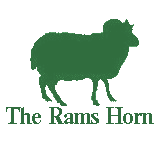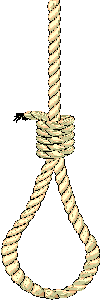HOME | home
Donkeys | Donkey Lore | Donkeys at Thistledown | John, the Farrier Comes | Morgan Horses | Horse Health | Horse Thieves | Driving Horses
Horse Thieves!!!
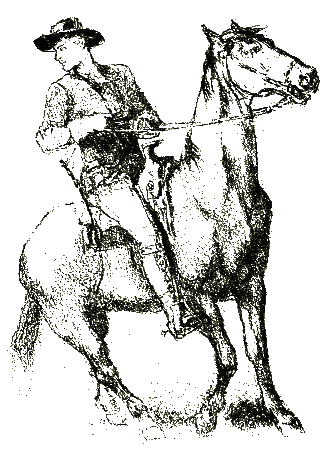
Horse Thieves enjoyed living dangerously in the early west as horse theft was considered a serious crime and many a horse thief saw the one way trip to the hanging tree. Horse thieves were rated as no good, dirty, rotten scoundrels. Today there are still horse thieves that are heartless and dirty rotten scoundrels so beware you too might find your horse gone missing! Many stolen horses end up in slaughter houses! Don't think it can't happen to you! There are no hard figures on how many horses are stolen. One source estimates as many as 40,000-55,000 may be stolen each year.
WHAT TO DO IF YOUR HORSE IS STOLEN!
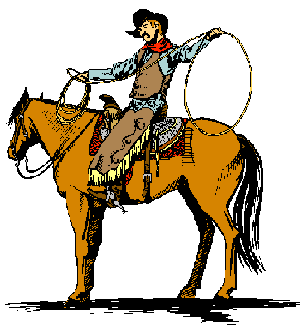
New York State has been plagued by a horse theft ring during the past year. Horses have been stolen in Erie/Niagara/Oneida/Herkimer/Chautauqua Counties. Suspects have been identified to authorities statewide and are currently being closely watched. In most of these cases the horses have been recovered at the large horse & tack auction held in Shipshewana Auction Barn, Indiana. Website: www.tradingplaceamerica.com Telephone: 260-768-4129

1. Report a horse theft or disappearance to your local police immediately.
Be sure to provide a written description of your horse, which includes height,
weight, age, color, breed, sex, markings, scars, injuries, medical conditions,
brands and tattoos.
Present them with the best photographs possible, full body shots are best,
as well as close-ups of any markings. Copies of registration papers and/or
bill of sale proving ownership should also be provided Remember that most
police officers are not horse savvy and will need your help understanding
the world of the horse.
2. Contact your New York State Horse Council Vice President or Director
for your Region. See Directors/officers page or visit www.nyshc.org with
the same information supplied to the police. The NYSHC will plug you
into their humane network for website posting. The NYSHC will forward
to all state horse councils.
3. Forward complete information, which must include good photos, and
contact information to all known livestock auctions and horse dealers in
your area and in surrounding states. Post flyers offering a reward for
information leading to the safe return of your horse. Contact local media
with your story. The quicker you act, the better your chances are.
4. Contact neighbors, local police, state police, sheriff, county sheriff's
livestock deputy, state brand inspector, your vet, and your farrier.
5. Supply your vet and farrier with a stack of posters to take on their farm
visits. Vets and farriers may have a comprehensive list of their horse
farm clients and may share that information with you for this purpose.
Ask them.
6. Stay in touch with law enforcement officials daily and communicate all
leads that are received.
7. Fax your fliers and Call the media -local radio stations, television
stations, newspapers, magazines, your horse club newsletter,
convenience stores, non horse vets, feed supply stores for horses and
feed supply stores for dogs and cats.
8. Contact slaughterhouses and auction yards.
9. Organize a group of family and friends to spread fliers, visit
slaughterhouses, Search the Internet communities and post your
information where applicable.
10. Contact your breed registry to let them know your horse is missing too.
11. When visiting auction yards and slaughterhouses look in every horse
trailer and holding pens. Look for trailers outside of the horse auction
grounds.
12. Take copies of posters to Amish and similar communities where
TV/Radio/Internet equipment is not available. These are honest people
and will help through their network.
13. In the event your horse is microchipped, please notify the appropriate
national registry and then forward the microchip information/serial
number to the police department. If deemed necessary, call the
slaughterhouses processing horses, most do have microchip readers.
14. Many of the horse traders and auction employees we dealt with were
found untrustworthy. Many go from sale to sale and work together in the
buy/sell community. It is easy for someone to turn his or her head the
other way. There are good people in the horse selling business. There
were many who helped us. Just be careful.
15. KEEP A DATE/TIME SPECIFIC JOURNAL of all conversations and
events until your horse is located.
16. If you locate your horse, keep it in sight. Call local law enforcement
agency immediately ? 911 works.
17. Keep pictures, proof of purchase, coggins papers, etc. with you at all
times.
18. Be prepared to look for a long time. You may feel like you are looking for
a needle in a haystack and the haystack keeps moving. Continue your
search until you can feel you did all you could do and have peace.
Otherwise you may have this question, the same one many theft victims
have reported wondering about to me, haunting you throughout time.
"Could I have done more?"
KEEP FOCUSED ON RECOVERY OF YOUR HORSE(S)
The recovery rate has been low over the years but with new technology, theft
education and the kindness of strangers around the world these figures are
looking up. Do something each day toward locating your horse. If you are one
of those kind strangers...help them pass the word along. Don't bury your head
in the sand and look the other way. Some day it may be you.
PROSECUTE:
Make sure you keep records of travel expenses, phone bills, printing cost and
any other expenditures. You may be able to use these for restitution when you
have your day in court. Join your state Horse Council and network with horse
friends. Let thieves know that if they pick on one of us they pick on all of us.
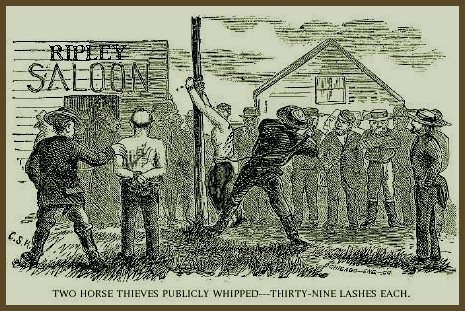
All horse owners should beware because today thieves look for horses that are not closely watched or situations where owners live away from the animals. This can include crowded horse events, barns, pastures as well as contract sales and leases. Theft through sales and leases more common than one would think. I never thought about someone stealing one of my horses until it happened to me in the fall of 2003. Horse theft has been a growing problem in the US and Canada for years and all horse owners should be concerned. Theft affects all breeds. It is our hope all horse owners will pay attention to what seems like a silent crime in today's busy world. Please, make sure all your fencing is in good repair, install flood lights and lock your gates. Take reasonable precautions but do remember a wire can be cut and boards removed. A common color horse like a chestnut or bay is difficult to recognize without some other form of identification. A few popular identification methods used are freeze branding, freeze marking, hot branding, and microchips. Some groups use lip tattoos, DNA, and blood typing. Many owners use a visible brand as a deterrent to theft while others use the microchip implants. Microchips include: name, address, registry and other pertinent information. Together, they offer a mark for searchers to see and a secret back up showing proof of ownership once a horse is located. We got our horse back because we knew the party who stole her. Many people are not so lucky. We want to give our thanks here to the Chautauqua County Sheriffs Dept. who were able to return our horse to us. Twig is now fat and sleek and in her paddock with her donkey pals where she belongs. We are VERY lucky she was recovered as she had been trucked across state lines into Pennsylvania and sold.
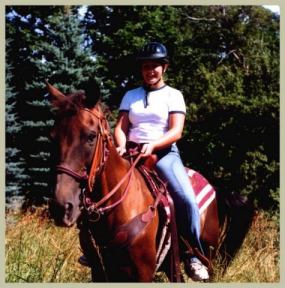
Twig
Stolen Horses

copyright 2002 , Jim & Beth Boyle, All Rights Reserved
No part of this website may be used for any purpose ( including using images )
without written consent from The Rams Horn
